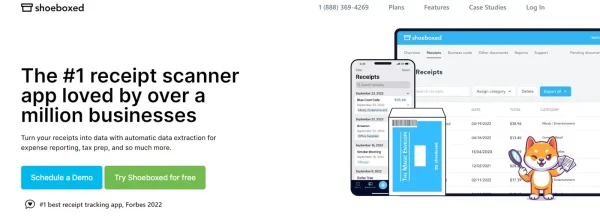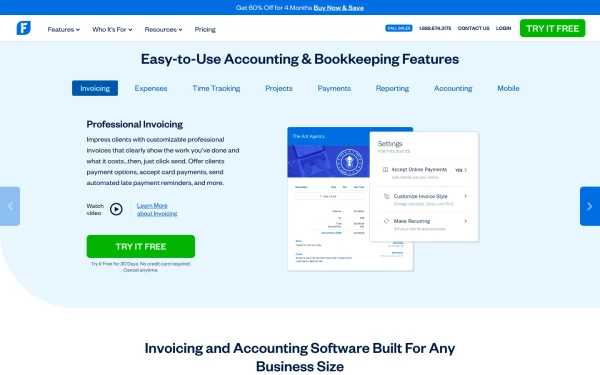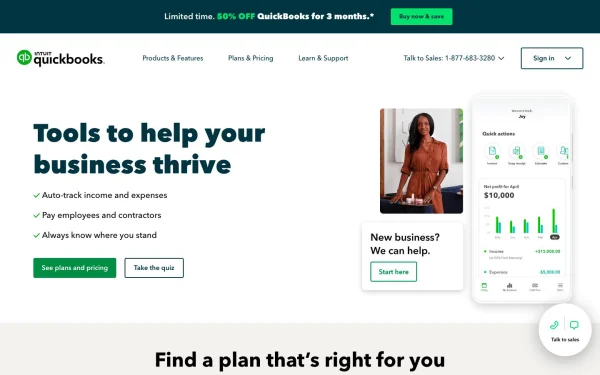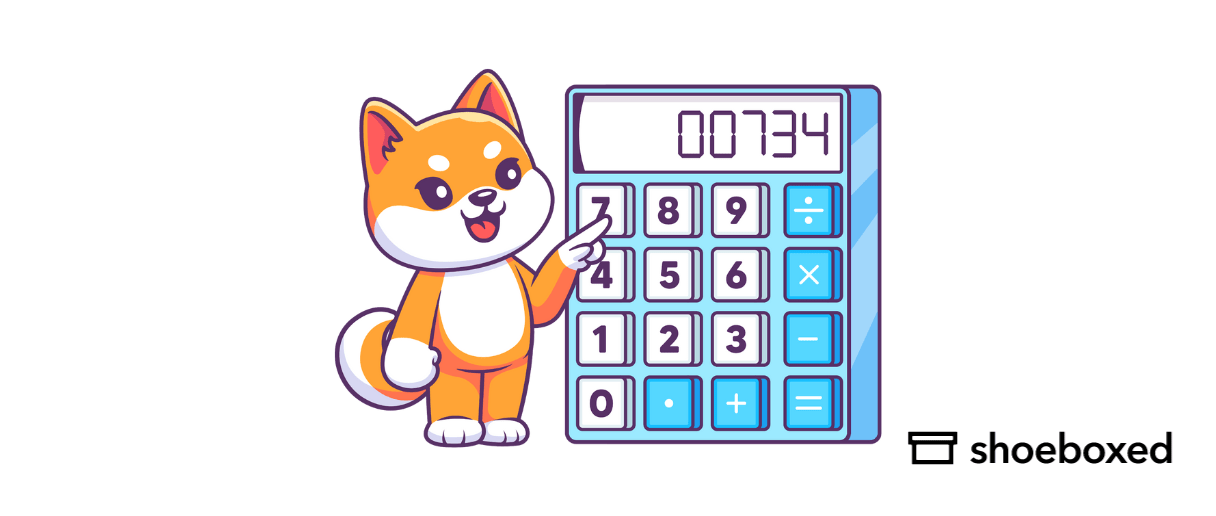Accounting is the process of tracking, recording, and reporting the financial information of a company.
Without a system to organize this financial information, a business would never know how much income versus expenses they were generating.
Thankfully, there are tools to make these financial tasks a little less daunting for small business owners in any type of industry.
In this article, we will cover what an accounting tool is, why accounting tools are important, what to look for when choosing an accounting tool, and the accounting tools that every business owner should incorporate into their company.
What are accounting tools?
An accounting tool is any instrument or device that helps small business owners track and record financial activities.
These tools can help record transactions, do easy bank reconciliation, keep track of accounts receivable and payable, generate payroll, handle invoicing, and produce financial statements so that you can gauge business expenses and profit.
Since accounting tasks are tedious and time-consuming, the goal is to make the business run more efficiently so that it frees up time for the business owner to spend elsewhere, such as evaluating business performance and growth.
Why are accounting tools important? 8 reasons
So, how exactly do accounting tools benefit small business owners?
Overall, accounting tools are designed to streamline processes with the use of automation.
In doing so, accounting tools can affect how your business operates in many ways.
1. Accounting tools save time
First off, streamlining processes can save you an enormous amount of time.
Streamlining processes cuts down on having to repetitively enter information.
An effective financial tool will automatically record the data and sync it with other accounting tools that you are using.
This makes completing accounting tasks much faster.
What would usually take hours to do manually, can be done in minutes with just a few clicks.
2. Accounting tools reduce the cost of business operations
Reducing the cost of business operations goes hand-in-hand with the benefit of saving time.
The less time spent on a task, the less amount of money you will have to pay an employee to complete the task.
Break free from manual data entry ✨
Use Shoeboxed’s Magic Envelope to ship off your receipts and get them back as scanned data in a private, secure cloud-based account. 📁 30-day full money-back guarantee!
Get Started Today3. Accounting tools reduce human errors
Accounting tools are a big plus when it comes to reducing human errors.
The more financial data a human enters, the higher the risk for human error.
That’s why accounting tools that automate and mainstream data are so effective at minimizing errors.
The data is usually entered once by humans and the accounting tool does the rest.
As long as the human enters the data into the tool correctly, the accounting tool ensures that the data is dispersed and mainstreamed in the correct format.
4. Accounting tools generate financial statements and invoices
Without financial statements, a business would never know where it stands financially.
Accounting tools can generate financial statements such as cash flow statements, cash flow forecasting, balance sheets, and profit and loss reports with just a click of a button—the same goes for invoicing.
Without accounting tools, it could take hours to go in and manually enter the data for each report and invoice.
5. Accounting tools make filing taxes easier
Filing taxes can be a chaotic process, especially when pulling together all of the required supporting financial data.
Accounting tools make this process much easier by organizing receipts and other financial data needed for filing taxes.
Additionally, if there are any problems, such as a lost tax return or tax error, you will be notified immediately instead of waiting a couple for the mail notification. Then you can immediately fix the error online.
6. Accounting tools integrate with other applications to reduce duplicate entries
If you have accounting tools that work with and complement each other, then you’re going to save yourself a lot of time and headaches.
Accounting tools that seamlessly integrate with other software and applications negate the need to make duplicate entries into each platform.
Accounting tool integration also allows for real-time tracking across all accounting system platforms.
7. Accounting tools provide 24/7 access to data
Cloud-based accounting tools allow you to access data and work from anywhere at any time.
If you are traveling or on the road, you can still check customer payments, financial documents, or any other data without having to be in the office.
8. Accounting tools offer a simple scalability solution
As your business grows, there’s a lot involved in onboarding new clients and adding new employees.
With accounting tools, you can generally just upgrade your plan to accommodate your growing business.
This keeps your business running smoothly without any interruptions during periods of growth.
What considerations are there when choosing accounting tools?
Accounting tools generally fit into any type of business or industry in one way or another.
When choosing tools for your specific business, just make sure that they maximize as many of the previously-listed benefits as possible.
Below are the key things you will want to consider when choosing the most efficient tool for your business:
1. The features that would serve your business best
One of the most important things to look for in accounting tools is the features they offer.
Consider which features would be of the most benefit to your business.
Do you need a tool that tracks inventory or generates payroll? Do you need a tool that offers multi-currency support?
Making a list of the features you need is the first step in narrowing down the possibilities for your business.
The next step is finding the tool that specifically offers the features you’re looking for.
Below is a list of some of the features that most business owners look for in financial tools:
Invoice creation and management
Expense management
Tracking revenue
Generating financial statements
Tracking inventory
Inventory cost management
Generating purchase orders
Processing payroll
Employee time tracking
Calculating taxes
Generating and tracking budgets by project
Task assignment to teams
Monitoring the progress of a project
Business performance tracking
Generating custom reports
Tracking contact information for customers
Managing interactions with customers
Tracking opportunities for sales
2. How easy the accounting tool is to use
If you struggle with accounting, the last thing you need are accounting tools that are difficult and clunky to navigate.
Read reviews and see if the tool offers a free trial.
Take some time to familiarize yourself with the application by doing a test run to see if you are comfortable using the tool.
The more comfortable you are navigating an accounting tool, the more you will use it in your day-to-day business operations.
Keep in mind that you may need to train others in your business to use the tool, as well.
3. How accessible the accounting tool is
Accounting tools that are accessible 24/7 from anywhere are a huge benefit, especially if you’re traveling a lot.
A cloud-based application with an easy-to-use mobile app is the best solution for those who are constantly on the go.
4. The scalability of the tool
Business growth is on every business owner’s radar.
Be sure to choose accounting tools that grow with your business.
Tools that offer multiple plans with additional users and features are ideal when scaling your business.
This way the scaling process is simple and doesn’t interrupt your daily business operations.
5. How much the tool costs
As with anything, make sure you can justify the cost of the accounting tool. Ensure that the benefits are worth the price.
Keep in mind that an accounting tool that’s expensive upfront may be worth the money in the long run.
That said, the best accounting tools don’t necessarily have to be the most expensive ones.
When choosing a tool for your business, take your needs and budget into consideration.
6. If the accounting tool has integration capabilities
Some of the best accounting tools are designed with various integration capabilities.
Remember that the more automated your processes are, the more efficient your business will run.
Consider the other applications you use or would like to implement, and find accounting tools that integrate with these systems.
What are the best accounting tools for businesses? Top 11 tools
There are many accounting tools to choose from, but for time’s sake, we’ve chosen the top 11 accounting tools that can be used in any industry or business.
1. Shoeboxed – Best scanning service

Shoeboxed’s home page
Shoeboxed manually scans your documents and receipts, digitizes them, organizes them, makes them easily searchable, and backs them up to your preferred online storage space.
As part of the best scanners for small businesses, all you have to do is send the receipt, document, business contact, or business contact card to their processing center in the pre-paid Magic Envelope.
Shoeboxed also has an app for your mobile device so that you can take pictures of your receipts or documents from anywhere and at any time.
This accounting tool can also use your mobile device’s GPS for mileage tracking.
Shoeboxed is ideal for any business owner or professional who is always on the go and needs to keep track of receipts and documents. You can save 9.2 hours per week with Shoeboxed!
Turn receipts into data for tax time ✨
Try Shoeboxed’s systematic approach to receipt tracking for tax season. 30-day full money-back guarantee!
Get Started Today2. Oracle NetSuite – Best for advanced features
Oracle NetSuite is a cloud-based accounting software platform that offers advanced accounting features.
This accounting tool tracks and automates a vast array of accounting processes.
Oracle NetSuite offers all of the basic financial functions along with billing management, accounting compliance, financial planning and projections, and international tools.
Oracle NetSuite manages billing operations for hybrid, usage-based, subscription, and transaction business models.
The billing management tools include advanced revenue and compliance functions.
NetSuite complies with accounting standards, including ASC 605, 606, and IFRS 15.
Revenue and reporting management functions can be automated, such as auditing, reclassifying, recognition, allocation, and forecasting.
As you scale your business, NetSuite supports more complex compliance, operational, and regulatory operations.
NetSuite also offers a risk management assessment so that you can avoid any major pitfalls before they happen.
NetSuite helps you manage international transactions and any associated compliance requirements.
NetSuite offers multiple language interfaces and multi-currency support.
The multi-currency management system supports more than 190 currencies and accounts for real-time conversion for the current exchange rate.
With their forecasting, budgeting, and planning features and real-time analytics, NetSuite allows businesses to plan their financial operations for the future.
3. Xero – Best integration platform

Xero’s home page
Xero is one of the best accounting tools for small business owners and professionals on the go.
Not only does Xero offer the same basic accounting features as other accounting software, but it also has phenomenal integration capabilities.
Xero integrates with over 700 apps. With that many apps, you know you’ll be covered in a variety of categories.
Some of these categories include the following:
Time tracking
Practice management
Point-of-sale
Payroll
Xero can fill in the gaps with app integration for those who don’t have a strong grasp of accounting.
Xero supports many add-ons, apps, and integrations.
Some of these include the following:
Hubdoc
Stripe
HubSpot CRM integration,
Mailchimp
Microsoft Outlook
Google Contacts
Xero Practice Manager
WorkflowMax
Shopify
Xero Analytics Plus
Xero Workpapers
Xero also allows you to connect with your bank accounts for easy reconciliations.
4. AccountEdge – Best scalability
AccountEdge Pro is one of the best accounting tools for small business owners who are looking to grow their businesses.
AccountEdge is great for small businesses that are onboarding new clients, adding additional employees, and experiencing more complex accounting needs.
They offer the following 4 plans:
AccountEdge Basic
AccountEdge Pro
Priority Zoom
Priority ERP
AccountEdge Basic is a standard bookkeeping tool designed for Desktop Windows or Mac and can be used by a single user.
AccountEdge Pro is a more powerful tool for Desktop Windows or Mac and can be utilized by multiple users.
Priority Zoom is a starter ERP software that is cloud-based and can accommodate up to 5 users.
Priority ERP is a full ERP software that is either cloud-based or can be used on-premises by an unlimited number of users.
5. FreshBooks – Best for ease of use

Freshbooks’s home page
FreshBooks is one of the easiest accounting tools to use.
This accounting software is a breeze for small business owners to set up and is simple to navigate.
Not only is FreshBooks an intuitive accounting software, but it also walks you through each process step-by-step.
FreshBooks is designed for business owners who don’t have much of an accounting background.
The dashboard is straightforward with an overview of financial operations, and the vertical menu bar on the right is quick to access.
From the vertical menu bar, you can access settings, add additional companies, insert products or services you offer, and access online payments.
The features are easy to access and use. Instead of making invoicing new clients a two-step process, you can create a new client while entering the data for the invoice.
The option to choose the currency on the invoice makes doing business globally much easier, as well.
FreshBooks also offers a Quick Expense Creation feature where you can create expenses right on the expense tab without having to click on another screen.
FreshBooks runs on many different web browsers, and it also offers mobile apps for both Android and iOS devices making it convenient to access.
6. QuickBooks – Most accessible

Quickbooks’s home page
QuickBooks is one of the best and most popular accounting tools for accessibility.
With the QuickBooks mobile apps, you can access data 24/7, work from anywhere, and access financial reports on the go.
QuickBooks will automatically back up your data to the cloud and sync the information across all of your devices.
Not only does QuickBooks offer mobile apps, but it also offers accessibility features, such as keyboard accessibility with shortcuts to common tasks.
The visual design is simplified for readability, and QuickBooks offers JAWS Screen-Reader Software (a script for assistive software).
Last but not least, one of the greatest accessibility features is documentation and virtual training for those who are visually impaired.
7. Kashoo – Best for tracking income and business expenses

Kashoo’s home page
There will always be business owners who are not comfortable connecting their bank accounts to their accounting tools—and that’s totally understandable.
Kashoo is a great option for small business owners who are looking to track business expenses and income without having to integrate their bank accounts with accounting software.
Kashoo does provide an option to connect with your bank accounts, but this accounting software works just as well regardless of whether you integrate it with your bank accounts.
The software is designed with a screen that combines income and expense management where you can record both at once, making it easier to enter both types of transactions manually.
The income and expense management feature makes it just as simple for small businesses to record transactions without connectivity.
8. Wave Accounting – Best free accounting software
Wave Accounting is one of the best free accounting tools for small businesses.
Wave Accounting is ideal for small businesses that are just starting out and have a limited cash flow.
Usually, when accounting software applications say they’re free, what they really mean is that the starter plan or a select few of the features are free.
However, with Wave Accounting software, the entire application is free.
The only way this accounting tool will cost you anything is if you accept payments via Wave Payments or use their payroll application.
Wave offers above-average invoice processing, 12 different financial reports, customer management, and the option to integrate your bank accounts with the software application.
Wave Accounting makes setting up small business accounting convenient and affordable.
9. Gusto – Best payroll software

Gusto’s home page
Gusto Payroll is one of the best financial tools when it comes to payroll software for small businesses.
Gusto is an efficient payroll accounting tool that offers a host of features and mobile phone apps for whenever you’re out and about.
Gusto Payroll includes standard features such as automatic tax processing, tax filing at all 3 levels, onboarding new employees, pay stubs, and accounting software integrations.
Along with the standard payroll features, you can manage human resources, enroll in health benefit plans, and manage retirement plans.
10. TSheets (QuickBooks Time) – Best accounting software for time tracking
Looking for one of the best time-tracking tools available?
Then TSheets is everything you could ever need and more.
Timesheets can be tracked from anywhere at any time, and it integrates with QuickBooks Online or Xero.
TSheets also allows you to quickly review and approve timesheets since it’s all online.
This accounting tool manages shifts that change weekly and even notifies employees when their shifts are posted or changed.
You can also attach projects, tasks, or jobs along with the shifts.
11. ProcurementExpress.com – Simplifying Purchasing for SMBs

ProcurementExpress.com stands out as the leading purchasing software, specifically engineered to eliminate the complexities of company purchasing.
Embracing the power of magical automation tools, this software transforms the purchasing process for SMBs into an effortless and efficient journey.
Ideal for businesses with field workers, ProcurementExpress.com facilitates rapid, on-the-spot purchase approvals and seamlessly integrates with hundreds of platforms.
This system is not just about managing purchases; it's about revolutionizing the purchasing experience, offering users a way to effortlessly control spending, save time for finance teams, and protect against budget overruns and undetected fraud.
It's no wonder that 98% of its customers are advocates, recommending ProcurementExpress.com for anyone looking to transform their business’s purchasing process into a model of efficiency and simplicity.
Never lose a receipt again 📁
Join over 1 million businesses scanning receipts, creating expense reports, and reclaiming multiple hours every week—with Shoeboxed.✨
Try Free for 30 DaysFrequently asked questions
What is the purpose of accounting tools?
The purpose of accounting tools is to automate as many accounting tasks as possible when managing financial reports and data while remaining compliant with tax and legal regulations. This saves small business owners a lot of time so that they can concentrate on other aspects of their business.
What can accounting tools do for your business?
Accounting tools are used for expense management, bill management, tax management, time tracking, inventory accounting, online payments, vendor management, processing payroll, cash management, project management, and financial planning.
Do you need a professional accountant if you have access to financial tools?
Financial tools will never replace the expertise of professional accountants. While the tools will help you manage on a day-to-day basis, professional accountants can offer advice on how to make the most out of your business. There is no replacement for a professional accountant, especially around tax time.
In conclusion
There are plenty of accounting tools out there that will make your small business accounting cycle process less time-consuming.
Automation is the key to running a business efficiently.
The more automation tools you incorporate into your small business, the more time you’ll have to concentrate on your customers, business performance, and growth.
Caryl Ramsey has years of experience assisting in different aspects of bookkeeping, taxes, and customer service. She uses a variety of accounting software for setting up client information, reconciling accounts, coding expenses, running financial reports, and preparing tax returns. She is also experienced in setting up corporations with the State Corporation Commission and the IRS.
You might also like:
About Shoeboxed!
Shoeboxed is a receipt scanning service with receipt management software that supports multiple methods for receipt capture: send, scan, upload, forward, and more!
You can stuff your receipts into one of our Magic Envelopes (prepaid postage within the US). Use our receipt tracker + receipt scanner app (iPhone, iPad and Android) to snap a picture while on the go. Auto-import receipts from Gmail. Or forward a receipt to your designated Shoeboxed email address.
Turn your receipts into data and deductibles with our expense reports that include IRS-accepted receipt images.
Join over 1 million businesses scanning & organizing receipts, creating expense reports and more—with Shoeboxed.
Try Shoeboxed today!



